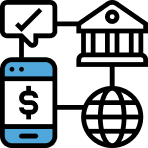Last Updated on February 13, 2025 by ceo_agency
Google Search is the most widely used search engine, making it an indispensable tool for businesses, researchers, and marketers. But accessing Google Search at scale or from specific locations often requires the use of a Google Search proxy. Whether you need to scrape data, bypass restrictions, or perform SEO tasks, proxies ensure smooth and efficient access. This article covers everything you need to know about using proxies for Google Search, their benefits, types, and tips for safe usage.
Why Use a Proxy for Google Search?
A proxy for Google Search acts as an intermediary between you and the search engine, masking your original IP address. But why is this important? Here are some key reasons to use a Google Search proxy server:

- Avoid IP Bans: Frequent or large-scale requests to Google Search can trigger rate-limiting or even temporary bans. A proxy server distributes your requests across multiple IP addresses to avoid detection.
- Bypass Geo-Restrictions: If you need search results specific to a particular country or region, proxies let you route your connection through that location. For instance, you can use a Mobile Proxy Canada for region-specific results.
- SEO and Marketing Research: For keyword analysis, competitor tracking, or SERP monitoring, proxies enable unrestricted access to search data.
- Web Scraping: Proxies are essential for collecting data from Google without being flagged or blocked.
- Enhanced Privacy: Using a Google Search proxy hides your real IP, safeguarding your online identity from potential tracking.
For researchers, businesses, and marketers, proxies provide the flexibility to work more efficiently and securely on Google Search.
Types of Proxies for Google Search
Not all proxies work the same, so choosing the right type is crucial for your use case. Below are the main types of proxies for Google Search:
- Residential Proxies:
These proxies use IPs from real devices connected to residential ISPs. They offer high anonymity and are less likely to be detected or blocked by Google. Ideal for SEO tasks and web scraping. - Mobile Proxies:
Mobile proxies assign IP addresses from mobile carriers, making them appear as if the traffic comes from actual smartphones. Services like Mobile Proxy France are great options for accessing Google from mobile-specific search rankings. - Datacenter Proxies:
Cost-effective and fast, these proxies originate from data centers. However, they are more likely to be flagged by Google compared to residential or mobile proxies. Best for small-scale projects or non-critical tasks. - Rotating Proxies:
These proxies automatically change the IP address for each request. Rotating proxies are highly effective for web scraping and large-scale tasks, reducing the risk of detection.
Each type has its own advantages, and the choice largely depends on the scale and purpose of your Google Search activities.
Features to Look for When Choosing a Proxy for Google Search
When selecting a proxy server for Google Search, consider the following essential features to ensure optimal performance and reliability:
- High Anonymity: Look for proxies that completely hide your real IP address to avoid detection.
- Server Locations: A diverse range of locations, such as Spain, Netherlands, or Indonesia, ensures you can access region-specific search results.
- Speed and Reliability: Proxies with high-speed connections and minimal latency are essential for seamless performance.
- IP Rotation: Automatic rotation reduces the risk of being flagged when sending multiple requests to Google.
- Scalability: If you’re managing large-scale tasks like web scraping or SEO monitoring, ensure the proxy can handle high traffic without interruptions.
By focusing on these factors, you can select the perfect proxy solution for your Google Search needs.
How to Safely Use a Proxy for Google Search

Using a Google Search proxy server correctly is crucial for avoiding errors, bans, or breaches. Follow these best practices for safe and efficient proxy usage:
- Choose a Trusted Provider: Opt for reliable services like LTESocks, which offer high-quality proxies with excellent performance.
- Use Proxy Rotation: To prevent Google from detecting and blocking your IPs, use proxies with automatic IP rotation.
- Combine with Tools: Pair your proxies with tools like OpenVPN for additional encryption and security.
- Limit Request Frequency: Sending too many requests at once can raise red flags. Implement rate-limiting to keep your activities under the radar.
- Test Your Proxies: Use a proxy checker to verify the speed, functionality, and anonymity of your proxies before starting any task.
By following these guidelines, you can ensure smooth and secure proxy usage for Google Search.
The Best Proxies for Google Search from LTESocks
When it comes to reliable proxies for search engines, LTESocks is a top choice for businesses, marketers, and researchers. Their extensive selection of residential, mobile, and rotating proxies provides unmatched flexibility and privacy.
For region-specific searches, LTESocks offers a wide range of mobile proxies, ensuring you can access Google results from almost anywhere. Whether you’re conducting marketing research, managing multiple accounts, or scraping large datasets, LTESocks provides the tools you need to succeed.Additionally, LTESocks offers solutions tailored for other purposes, such as proxies for eCommerce or online games, making them a versatile provider for all your needs.






























































